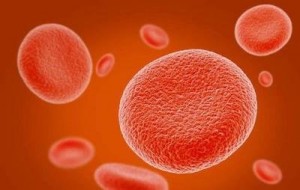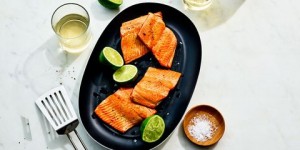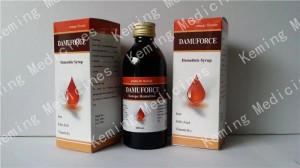Even if you’re not super into nutrition, you’ve probably heard about the importance of iron.
In its most famous role, iron is a key component of your hemoglobin, a protein that allows red blood cells to carry oxygen from the lungs to the rest of your body.
But that’s not all iron is good for. The mineral also plays a role in energy production, growth, brain development, cellular functioning, and the synthesis of certain hormones.
By some estimates, almost one-third of American women and children don’t have enough iron in their bodies—men have lower iron needs, so deficiency is less common.
Chronically low iron levels lead to iron-deficiency anemia. According to the National Institutes of Health (NIH), this can cause a number of signs and symptoms: pale skin, cracked lips, brittle nails, fatigue, shortness of breath, chest pain, dizziness, irritability, headaches, trouble concentrating, and more.
If you worry that you’re iron deficient, it’s best to get a blood test to confirm or deny your suspicions. A doctor might test your hemoglobin levels to test for iron-deficiency anemia; for men, anything below 13 g/dL could be a sign of anemia. Or, the doctor might test your iron levels directly—for adults, 10-30 mmol/L is normal, whereas anything below 10 mmol/L is low.
The only way to increase your iron levels is to actually consume the stuff. Adult men need 8 milligrams (mg) per day. The best food sources of iron are fortified cereals (which provide 100 percent of your daily value), oysters, beef, beans, lentils, and spinach. That said, plant-based sources contain non-heme iron, which isn’t as bioavailable (meaning your body doesn’t absorb as much) as the heme iron found in animal sources.
Not sure you’re getting enough iron from your diet? An iron supplement could help. If you follow a vegan diet or donate blood often, it’s possible that you may need a supplement to meet your iron needs.
Ashley Harpst, R.D., a sports dietitian and owner of Go For the Gold Nutrition, recommends talking with your doctor to figure out exactly how much iron to take. She also warns that there are potential side effects of supplementation, including constipation, diarrhea, nausea, bloating, and heartburn. To avoid all this, it’s best to take your supplement with food.
Some supplement makers sell themselves with a workout angle: Good blood flow means bigger gym gains. While consuming iron can prevent and treat iron-deficiency anemia—and doctors may recommend iron supplements to increase your level. Your body may use more iron during vigorous aerobic training, especially if you train on most days of the week for 60 minutes or more, says Diane M. DellaValle, Ph.D., R.D.N., an associate professor and research nutritionist at King’s College.
Look, iron supplements won’t enhance your muscles or improve workouts. Most men get the recommended eight milligrams of iron daily, says Della-Valle. (Fortified breakfast cereals have about 20 per one-cup serving.)
So the megadoses in iron supplements are kind of useless.Your body has a natural iron shutoff that stops you from overloading, unless you have a disorder like hemochromatosis.
That said, if you’re a hardcore athlete or experiencing dizziness or extreme fatigue, have your doctor run that blood test for low iron. If you do have iron-deficiency anemia, your doc may prescribe an iron supplement, but ask how you can change your diet, too. It’s not like the food prescription is bad—beef, oysters, dark chocolate, chickpeas, potatoes, and cashews are all good (andtasty) sources of iron.
So if you’re looking to supplement, what should you take?
The National Institutes of Health recommends only buying products that have been tested by third-party laboratories like United States Pharmacopoeia (USP) or NSF International.
Supplements aren’t regulated by the Food and Drug Administration (FDA) the way drugs are, so there’s no guarantee that you’re actually getting what’s on the label, but third-party verification is a good insurance policy. Keep in mind that consuming more than 45mg of iron per day may be harmful, so it’s best to choose supplements that contain 30mg or less.
To save you time browsing the store shelves, we present to you this product from our company – HEMATINIC SYRUP.
HEMATINIC SYRUP is a liquid supplement with 32.8mg of iron and other B-vitamins for healthy red blood cell growth. Because it’s a liquid supplement, it can be easily absorbed and is gentle on the digestive tract.
Post time: Jul-21-2022







